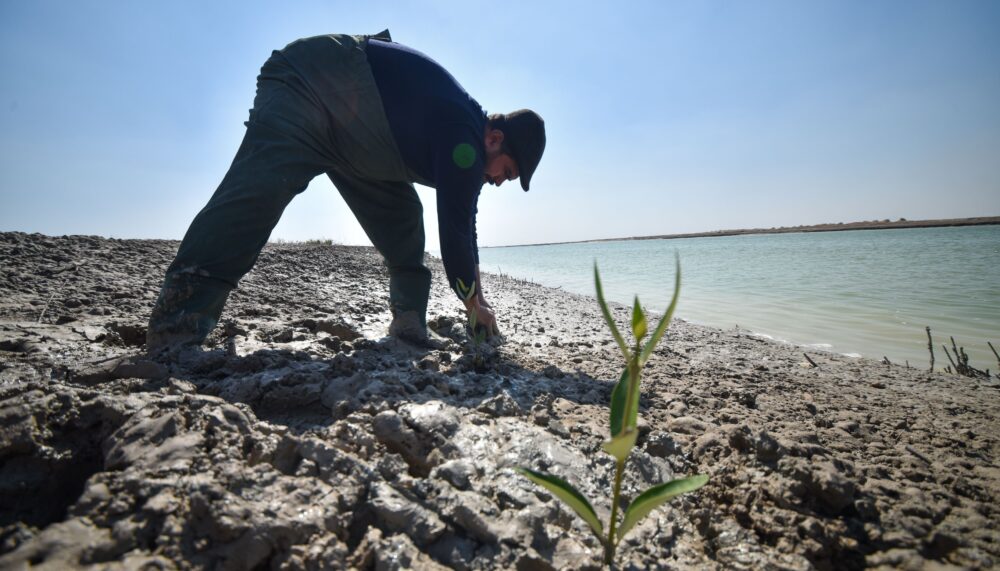CURRENT PROJECT
Strengthening enhanced climate and community resilience in Iraq

This project builds climate resilience in Iraq by combining community solutions, sustainable infrastructure, and conflict-sensitive strategies to tackle climate security risks.
Timeframe: 2024 - 2025
This project addresses climate resilience in Iraq by integrating community-based solutions into sustainable infrastructure initiatives to tackle climate security risks. In Al-Zubair (Basra governorate), efforts focus on mitigating climate-related security risks through improved conflict management mechanisms, while in Balad (Salah-Din governorate), the emphasis lies on fostering sustainable, collaborative water management practices to address climate-related challenges.
Building on the Weathering Risk Peace Pillar project, led by the Berghof Foundation and Peace Paradigms Organisation (PPO), this initiative leverages existing networks and stakeholder dialogues to foster inclusive and sustainable climate adaptation. Efforts address immediate social infrastructure needs while incorporating livelihood support to improve long-term resilience.
The project highlights Iraq's vulnerability to climate change, with severe impacts such as water scarcity, extreme weather, and dust storms intensifying governance and social cohesion challenges. By addressing these interconnected risks through dialogue, infrastructure, and capacity building, the project aims to reduce conflict and strengthen community resilience.
Background
Iraq is among the most vulnerable and least prepared countries for climate adaptation, facing challenges like water scarcity, extreme heat, and dust storms.1 These impacts worsen existing issues related to governance, resource allocation, social cohesion, and migration, increasing the risk of conflict in fragile areas with strained community-government relations, limited resources, and inadequate mechanisms to address climate challenges and resolve disputes. With this project we aim to specifically address social and traditional infrastructure needs while incorporating a focus on livelihood support.
The project builds on the achievements of the Weathering Risk Peace Pillar project, led by the Berghof Foundation and its local partner, Peace Paradigms Organisation (PPO), and funded by the German Federal Foreign Office. The project builds on the dialogue engagement in Al-Zubair (Al-Fidha neighborhood) that addressed conflicts over resources, different tribal/cultural practices, and conflict management mechanisms between climate-related IDPs (internally displaced persons) and host communities through developing a social pact. In addition, the project takes forward the dialogue engagement in Balad district (Al-Hatamiyah sub-district) by addressing severe water shortages caused by government restrictions, reduced rainfall, and limited water releases from Türkiye, all exacerbated by climate change.
Partner and funding
This project is funded by GIZ.
Project lead
Nike Löble
Portfolio and Project Manager
email hidden; JavaScript is required
Team members
Sonja Neuweiler
Christian Gülisch
Kathrin Buddendieck
Hilal Akrami
Media contact
You can reach the press team at:
+49 (0) 177 7052758
email hidden; JavaScript is required


